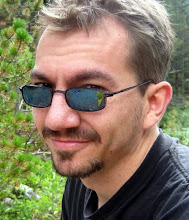Andrew Sullivan has an insightful article over at the Atlantic. He examines the source of the growing divide in America.
Given this quiet, evolving consensus on policy, how do we account for the bitter, brutal tone of American politics? The answer lies mainly with the biggest and most influential generation in America: the Baby Boomers. The divide is still—amazingly—between those who fought in Vietnam and those who didn’t, and between those who fought and dissented and those who fought but never dissented at all. By defining the contours of the Boomer generation, it lasted decades. And with time came a strange intensity.
The professionalization of the battle, and the emergence of an array of well-funded interest groups dedicated to continuing it, can be traced most proximately to the bitter confirmation fights over Robert Bork and Clarence Thomas, in 1987 and 1991 respectively. The presidency of Bill Clinton, who was elected with only 43 percent of the vote in 1992, crystallized the new reality. As soon as the Baby Boomers hit the commanding heights, the Vietnam power struggle rebooted. The facts mattered little in the face of such a divide. While Clinton was substantively a moderate conservative in policy, his countercultural origins led to the drama, ultimately, of religious warfare and even impeachment. Clinton clearly tried to bridge the Boomer split. But he was trapped on one side of it—and his personal foibles only reignited his generation’s agonies over sex and love and marriage. Even the failed impeachment didn’t bring the two sides to their senses, and the election of 2000 only made matters worse: Gore and Bush were almost designed to reflect the Boomers’ and the country’s divide, which deepened further.
He then talks about the only '08 candidate he thinks can bridge the divide and bring people together - Barack Obama.
But if you sense, as I do, that greater danger lies ahead, and that our divisions and recent history have combined to make the American polity and constitutional order increasingly vulnerable, then the calculus of risk changes. Sometimes, when the world is changing rapidly, the greater risk is caution. Close-up in this election campaign, Obama is unlikely. From a distance, he is necessary. At a time when America’s estrangement from the world risks tipping into dangerous imbalance, when a country at war with lethal enemies is also increasingly at war with itself, when humankind’s spiritual yearnings veer between an excess of certainty and an inability to believe anything at all, and when sectarian and racial divides seem as intractable as ever, a man who is a bridge between these worlds may be indispensable.
We may in fact have finally found that bridge to the 21st century that Bill Clinton told us about. Its name is Obama.
Sullivan has made it clear that he disagrees with many of Obama's more liberal positions, but supports him because of his character. Matt Yglesias notes that Sullivan's analysis is "more personality-driven than is wise," but that it also seems to be the way many voters are. I find myself agreeing with Sullivan on this in that I find my support for Obama more to be because he seems a genuine person willing to say tough things and wanting to unite people more than for any of his policy positions.




No comments:
Post a Comment